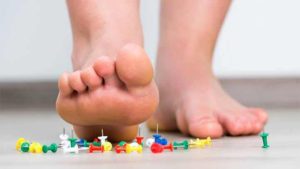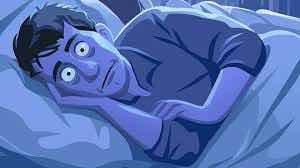
The kidneys are wonder-organs. They do so many different things. They impact so many life-processes. It is impossible for individuals to realise what all they do unless they stop doing these things. That is why when the kidneys do not function, so many routine aspects of daily life are affected, that dealing with these issues (co-morbidities as they are called) becomes as big a challenge as the main kidney failure itself.
In Atypical HUS patients without access to a complement inhibitor who need to be on dialysis for several years, these problems become even more significant as they tend to worsen over time and the symptoms impact quality of life more and more as the years go by. Though they may not be life-threatening by themselves, left untreated, they can dramatically increase the burden of the disease. Sometimes, doctors don’t take them as seriously because they are not clinically significant – they don’t do any harm to the body itself. However, for the person who is suffering, often, these problems become more bothersome than kidney failure itself.
The good thing is these problems often have simple solutions. It is just about talking to the treating doctor, insisting on finding a solution and then sometimes, by trial and error figuring out what works. Like everything in medicine, these problems may not have a one-size-fits-all solution. However, it is possible to find a solution to most such problems.
Here are a few commonly encountered problems which are not life-threatening but can seriously hamper quality of life and some effort should be made to treat them. Medications suggested here must never be started without talking to the treating doctor. Each individual is different and every medication has side effects that can sometimes be worse than the condition it is treating.

1. Restless Legs Syndrome: Restless Legs Syndrome (RLS) describes the urge to shake or move the legs and extreme restlessness of the legs in the absence of motion. This is a common side effect of those with long term Kidney Failure. Patients typically have to walk about to get relief from the symptoms. Shaking the legs vigorously also helps. The symptoms usually worsen at night and many patients find it very difficult to sleep. There are some very effective treatments for this syndrome. It is important to have a discussion about this condition with the treating doctor and figuring out what drug might be best suited. More information about RLS can be found here.

2. Peripheral Neuropathy: Numbness of the feet and hands is common among long term dialysis patients. Long term kidney failure affects the nerves. This results in numbness and a feeling of tingling in the hands and feet. Over a period of time, the symptoms can worsen and become painful. While longer, more frequent duration dialysis can help with this, the symptoms are not always completely reversible. However some amount of relief can be achieved by some drugs. More information about Peripheral Neuropathy can be found here.

3. Constipation: Difficulty in passing stools is a very common side effect of kidney failure. A lot of this is due to the change in fluid status of the body. Dialysis patients are sometimes fluid overloaded and then during the dialysis sessions, there is rapid removal of fluid. This results in several problems with the gut and the way it works. This problem is further compounded by the diet restrictions that are a standard part of the dialysis diet. It is difficult to get adequate quantities of fibre in the diet and this can worsen the problem. There are several possible solutions to constipation and the treating doctor should be consulted on what possible solutions can be tried. Some of the solutions worth discussing are the use of Lactulose Syrup, Psyllium Husk and Stool Softeners. This article has more information about Constipation on dialysis.

4. Itching: Also called Uremic Pruritis, many patients have a big problem with itching. There could be multiple causes of itching. The most common is excess Phosphate in the body. Since the kidneys do not remove the excess phosphorus in the blood, this can build up and cause itching. There are multiple types of Phosphate binders that could be prescribed to help with this problem. More efficient and regular dialysis can also help. Another cause for itching is related to the nerves. If the Serum Phosphorus levels are normal, then nephrologists might recommend a drug that treats disorders of the nerves.

5. Sleep Problems: Called Insomnia in medical parlance, sleep disturbances are very common among dialysis patients. There could be several reasons for this. It is quite difficult to nail down the cause of sleeplessness. Some people find it difficult to sleep because of Restless Legs Syndrome described above. In that case, addressing that could give almost immediate relief from insomnia as well. In several patients, sleeping during the day or not engaging in any physical activity during the day can result in sleeplessness at night. Patients could try doing something that gets them tired during the day and see if this improves their sleep at night. Sleeping in the afternoons can also cause sleeplessness at night. In other cases, if it is difficult to identify the cause, doctors often prescribe a mild sedative. While it is not always the best solution, sometimes the harm to the quality of life due to poor sleep might be worse than the side effects of a sedative. These days there are drugs that are relatively harmless and a conversation should be had with the doctor about this option.

6. Sexual Dysfunction: This is is a common side effect of kidney failure. Most patients on dialysis report some form of sexual dysfunction over a period of time. Typically the symptoms worsen with age with kidney disease. Lack of arousal, erectile dysfunction, fertility problems are typically reported by patients. For some of these problem, there are effective drugs that can be prescribed. For some, there are other solutions. This article has for more information about Sexual Dysfunction with Kidney Disease.
The magnitude of problems that are not clinically significant in the traditional sense may not be as trivial as they may seem. While the problems above may not contribute to mortality and morbidity of patients with Atypical HUS, they must not be ignored by any means. The impact on Quality of Life is severe and it is imperative for these problems to be recognised and addressed as effectively as possible. Patients must discuss these problems with their Doctors and attempt to find a solution that works for them.
This article is the fourth in the aHUS Alliance series, Dialysis Diaries.
Author Kamal D Shah has been on dialysis for the last 22 years. He is founder of Atypical HUS India, and co-founder of NephroPlus Dialysis Centres, India’s largest Dialysis Centre Network. He is one of the directors of aHUS Alliance Global Action, whose most recent collaboration includes the KDIGO publication on Increasing Access to Integrated ESKD Care. Click HERE to read the aHUS Alliance interview with Kamal D Shah. Click HERE to read his blog.

